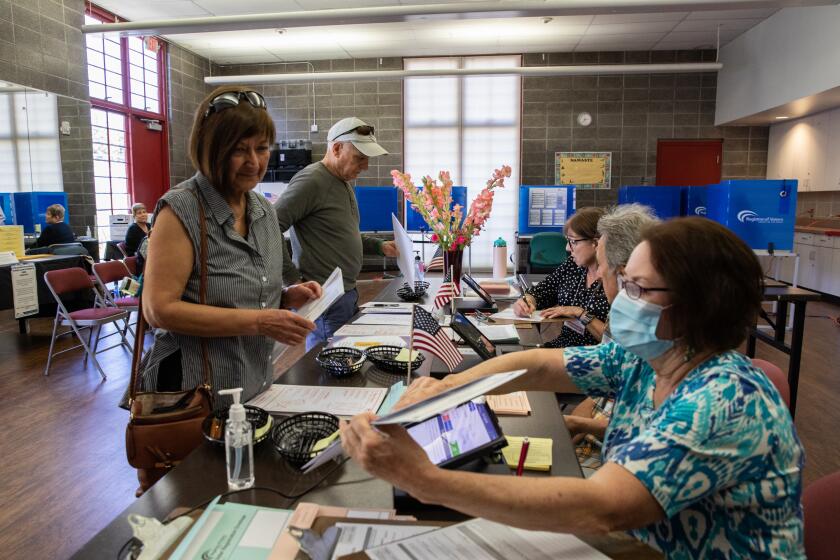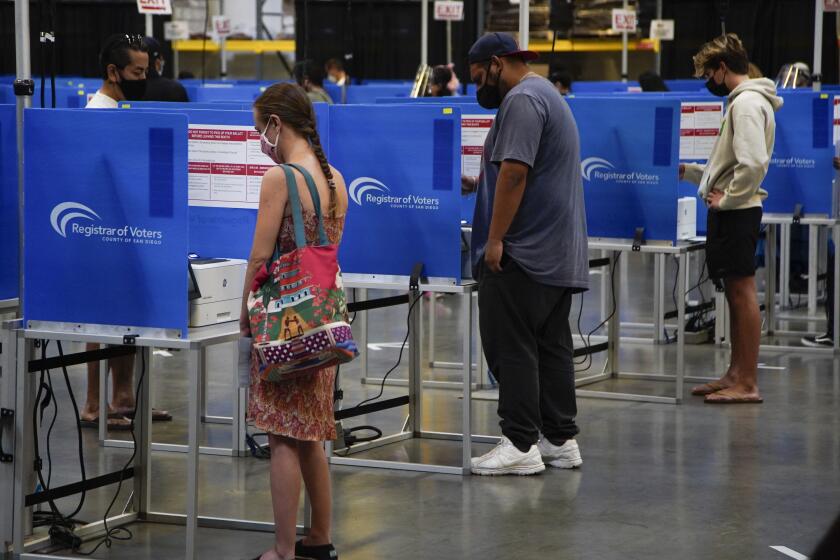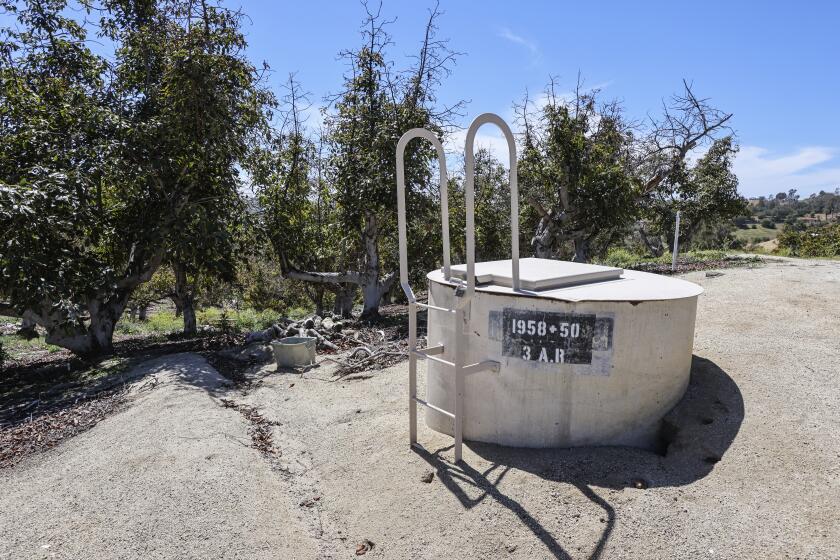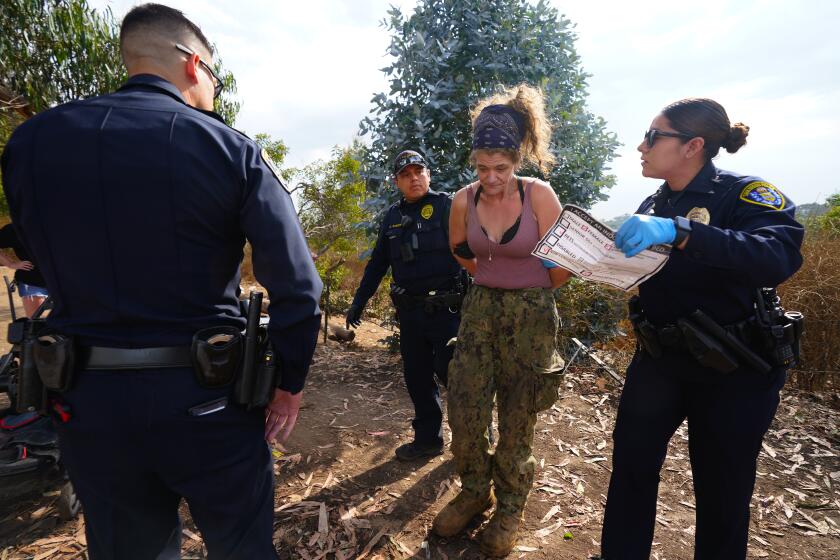San Diego to do environmental review for backcountry marijuana businesses
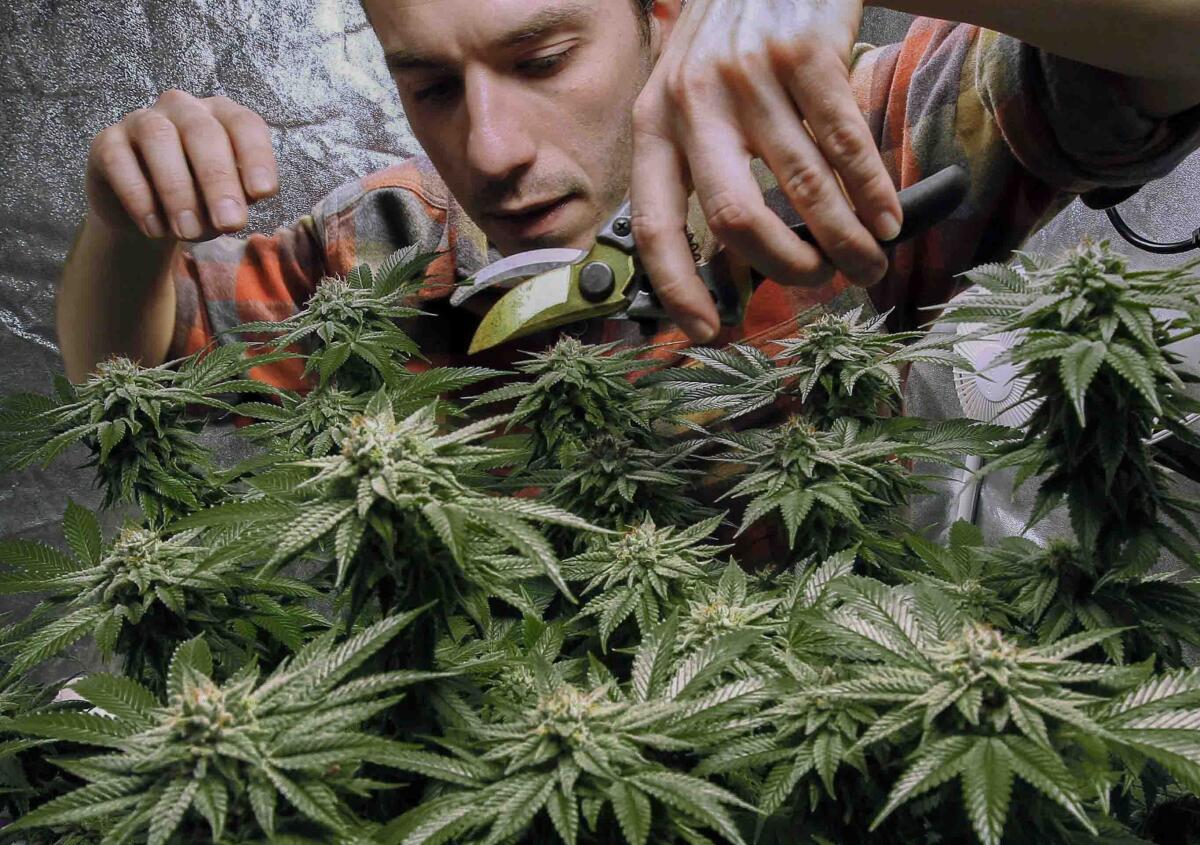
)
San Diego County will conduct an environmental impact report of its proposed cannabis expansion, the Board of Supervisors decided in a 4-to-1 vote Wednesday.
Supervisor Jim Desmond voted against it.
The review would cover the effects of a future ordinance to expand cannabis cultivation and sale in the unincorporated county, including a “cannabis equity” plan to provide access to the industry for minority business owners.
The process will take two years, county officials said, but would reduce the startup costs and permit requirements for new cannabis businesses.
The board also considered less extensive forms of environmental review but concluded that a full review would curtail possible legal challenges.
“In order to properly ensure we have a long-lasting ordinance that has the right structure in place, the right permitting process in place, that has many of the right legal protections, I believe that will take more time,” said Board Chair Nathan Fletcher, arguing in favor of the two-year review process.
The decision represents a step toward overhauling the county’s cannabis regulations, which previously banned all but five marijuana businesses in unincorporated areas.
In January, with a new Democratic majority, the board voted to update county rules in light of the state laws legalizing marijuana. They asked staff to develop an ordinance to permit cannabis retail, cultivation, manufacturing, testing, distribution and micro-businesses for medical and adult-use marijuana, including lounges for on-site consumption.
The board also voted for changes that extend permits for the five existing cannabis businesses, allow them to sell edible and drinkable products, and to expand their facilities by 10,000 square feet. Those provisions would take effect after the board considers the final cannabis ordinance in October.
The county’s environmental review would eliminate the need for individual businesses to conduct their own reviews, officials said.
“The more environmental review the county conducts up front, the lower the permitting requirements will be for future businesses,” said Rami Talleh, deputy director for San Diego County Planning and Development Services.
Supervisor Jim Desmond, who represents much of unincorporated North County, voted against the environmental review, saying additional cannabis businesses aren’t needed in backcountry areas and would cause environmental and safety problems for those communities.
“I just cannot support the idea that we should support the distribution and sale of cannabis in the unincorporated area, particularly marijuana dispensaries that allow onsite consumption,” he said. “I think that’s a horrific idea.”
Public speakers in favor of opening up cannabis permits urged the county to hasten adoption of its new ordinance, arguing that San Diego is already behind the curve for the marijuana industry in California.
“San Diego County is not a pioneer in cultivation of this commodity,” said Hannah Gbeh, executive director of the San Diego County Farm Bureau. “We are late to the game. We need to provide a legal framework, not only so we can eradicate the black market, but so that we can provide a legal path for farmers who want to grow and sell this commodity.”
Some speakers expressed concerns about health and safety hazards. Children and teens could gain access to marijuana and suffer mental illness, cognitive loss or addiction from potent products, they said.
They also argued that there has been inadequate enforcement of age limits on cannabis purchases andthat retailers sell colorful, flavored products designed to be attractive to kids.
Others stressed concerns about the impact of cannabis cultivation and manufacturing on sensitive ecological areas, and said impaired drivers could pose hazards on backcountry roads.
Some questioned the equity provision, saying that Black and Hispanic people disproportionately affected by drug enforcement efforts would be better served by other job and business initiatives than by programs to help them enter the cannabis industry.
Supervisors responded that those concerns are best addressed within the environmental review process.
“An effectively regulated cannabis market is not only in the best interests of the community but is in alignment with state law,” said Supervisor Terra Lawson-Remer. “I want to acknowledge the many people who testified with concerns. This is the reason we do an EIR is to address the impacts of a program on our community and our environment.”
The Board of Supervisors will consider the plans later this year when staff returns with a cannabis ordinance proposal, officials said.
Get Essential San Diego, weekday mornings
Get top headlines from the Union-Tribune in your inbox weekday mornings, including top news, local, sports, business, entertainment and opinion.
You may occasionally receive promotional content from the San Diego Union-Tribune.

